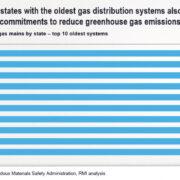1. Personal exemption eliminated:
The Tax Cuts and Jobs Act (Act) eliminated personal exemption deductions for yourself, your spouse, or your dependents beginning with your 2018 tax returns (to be filed in 2019).
2. Standard deduction increases:
The standard deduction amount nearly doubles for all filers for 2018 to $12,000 for single and married filing separately, $24,000 for married filing jointly, $18,000 for head of household.
3. Itemized deductions limited:
The Act limits deductions for home mortgage and state taxes. It eliminates most miscellaneous itemized deductions such as employee business expenses, tax preparation fees, investment expenses, employment related educational expenses, job search expenses, safe deposit box fees, investment expenses from pass-through entities.
4. State and local limited:
You are limited to $10,000 in state and local income taxes. There was no limit under old law.
5. Child tax credit increases:
The Child Tax Credit doubles from $1,000 to $2,000. Each child must have a Social Security number before the due date of your return.
Credit for other dependents:
The Act introduces a new $500 credit for non-child dependents. It’s available for each dependent who does not qualify for the child tax credit.
6. Mortgage interest deduction limited:
Individuals who purchase a home in 2018 are limited to interest up to $750,000 in mortgage debt. Old law allowed $1 million. The interest deduction on home-equity loans is eliminated, regardless of date incurred.
7. Moving expenses eliminated:
The deduction for moving expenses has been suspended for most taxpayers for tax years from 2018 to 2026. This suspension does not apply to members of the Armed Forces of the United States on active duty who move pursuant to a military order related to a permanent change of station.
8. Alimony no longer deductible:
Alimony and separate maintenance payments are no longer deductible for any agreement executed or modified starting in 2019 (for the 2020 filing season).
9. ABLE savings accounts expanded:
The Act enables eligible people with Achieving a Better Life Experience (ABLE) accounts to put more money into their ABLE account and possibly qualify for the Saver’s Credit. The Act also allows ABLE beneficiaries and certain family members to roll money from 529 plans into ABLE accounts.
ABLE accounts are state-offered accounts that help people with disabilities and their families pay for disability-related expenses. Distributions, including earnings, are tax-free to the beneficiary if used to pay qualified disability expenses. These may include housing, education, transportation, health, prevention and wellness, employment training and support, assistive technology and personal services.
10. Health savings accounts changed:
A change in the inflation adjustment calculations for 2018 reduced the maximum deductible HSA contribution for taxpayers with family coverage under an HDHP by $50 to $6,850.
11. 529 Education savings plan changed:
Under old tax laws, your 529 could only be used at eligible colleges and universities. Under the new Act, you can use your plan to cover up to $10,000 per year of qualifying expenses for any school and any grade from kindergarten through 12th as well. That includes public, private, and religious institutions.
* * *
Victor Santos Sy graduated Cum Laude from UE with a BBA and from Indiana State University with an MBA. Vic worked with SyCip, Gorres, Velayo (SGV – Andersen Consulting) and Ernst & Young before establishing Sy Accountancy Corporation in Pasadena, California.
* * *
He has 50 years of experience in defending taxpayers audited by the IRS, FTB, EDD, BOE and other governmental agencies. He is publishing a book on his expertise – “HOW TO AVOID OR SURVIVE IRS AUDITS.” Our readers may inquire about the book or email tax questions at [email protected].








